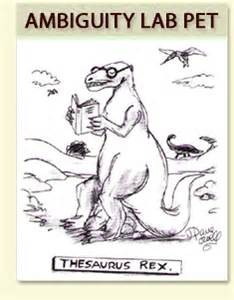As a young girl, I have always loved language, especially new words and I was extremely fascinated with words that had the same meaning. Which at a young age, I wanted a dictionary and a thesaurus and loved learning new words and formulating complex sentences.
Our book, By Goldstein, in Chapter 11, covers many areas of language, which only added to my desire to know and learn words and process language. As stated, it discusses “lexical ambiguity”, I mentioned above, that “words can have more than one meaning”. Which as we all might recall one of the classics was: they’re, their, and there. (Goldstein, p.. 303)
I also loved listening and grasping the context of the word being used. Words always fascinated me. Without knowing the context though, there would indeed be great confusion or misunderstanding. Things would become misconstrued!
For me, I loved to study the words and their meanings. I would write, which would be practice, as well utilize so I clearly understood and properly used the context of the word correctly. When formulating the sentences with the proper syntax, things can be understood!
To this day, I STILL love words and language! I enjoy writing and getting the context of new words.
I enjoyed learning much more in that chapter on language and the different processes like lexical priming, and syntax first approach. It showed me a deeper side to what I already loved. I appreciate that!
Even the article, “The difference between Lexical Ambiguity and Structural Ambiguity in English language, it refers to “ambiguity” itself as a “word or expression that can be understood in two or more possible ways”, which makes the English language one of the most difficult to learn. (scrib’d.com, 2016)
This is also why as our book says, and goes into the Human language IS special, which I completely concur! The way we learn and process words alone, to create use-able language, and being to communicate is fascinating!
I even love my husband because he loves “words” and learning them and using and applying them, especially to formulate and be careful of the syntax of the sentence structure so others can understand what it is you are trying to convey. We both very much enjoy that, but as I mentioned, I truly appreciate this course, especially the chapter on language for other factors that I had not known previously! Made it even more fascinating. 🙂
~~Yes, call me a “word” junkie! LOL





Comment correction:
Inquiry is the formal investigation and Enquiry is to ask a question
Great submission, I’m a bit of a word junkie too! I love words and their double meanings or triple meanings in the case of a chip. Since I have a foreign spouse, it’s always fun and interesting when I have to explain a word that’s used ambiguously at times. I say them without thinking sometimes or sometimes I say them while thinking just to watch her puzzled look. And it makes it more fun if she’s throwing in it’s definition in British English for example Rubber can be used to describe the material itself or a condom, but throw in British English and you’re talking about an eraser. I especially like to look at English across nations. For instance I just learned from my Australian friend that they don’t just use the word Inquiry, they also have the word Enquiry, and they do not mean the same thing.
Inquiry in Australia means: to request information, or to ask questions.
Whereas, Enquiry means: to have an official investigation.
In American English Inquiry takes care of both of those definitions, but in Australian English the two definitions have been separated out. I find that extremely interesting that the ambiguity has been taken away and assigned to one word, but in American English we developed that ambiguity into our way of writing and speaking.
I think it’s important to note that ambiguity doesn’t just exist in English, but it also exists in German was well for example. Or another example is French, in Belgium they often don’t pronounce the endings of words so they make it sound ambiguous in the sense that you can’t tell it’s singular or plural without context. Language across the board is an interesting thing and if I could learn them all I would so I could continue to find word gems not only in English, but Spanish, French, German, or Mandarin even.
Great post! I enjoyed your love of words like mine. I think that language can be such a fun thing to learn. It helps us to better interpret others and express ourselves. Currently, my daughter (6) loves this too. We are big readers in our family and like riddles. With the concept of lexical ambiguity I believe she is starting to more fluidly discover my answers to my jokes/riddles and I have to reach to find new ones. Isn’t it interesting though how language is such an important tool to learning? With my daughter it was the simple joke of left and right. Her teacher showed her the right hand and said this is the mother hand because it is always right. When that did not seem to occur to her we used the “thesaurus” to say “this is my right hand” “RIGHT?” The appreciation of language can inspire everyone to have a thirst for knowledge and helps to better make connections with more speedy responses to problems at hand. I really enjoyed your posts and our common interest.